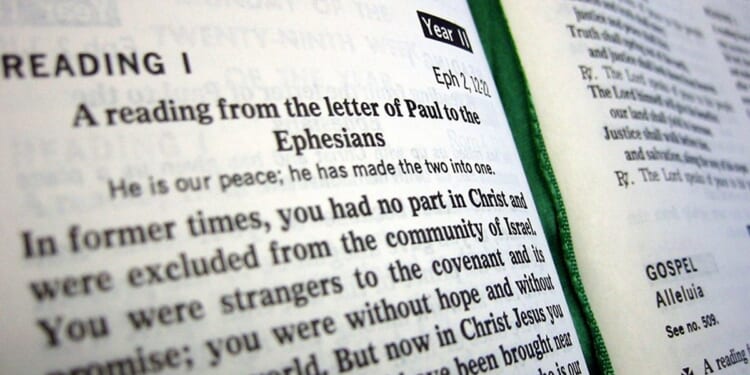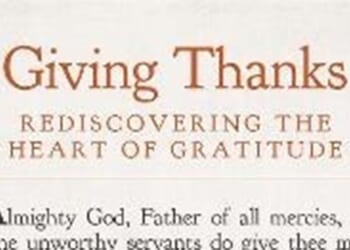Isaiah 1.10-18; Psalm 32.1-8; 2 Thessalonians 1; Luke 19.1-10
IT IS no fun being short. Time and again, you are at some performance or event, but are seated behind someone blocking your view. There are no handy sycamore trees in a theatre. In a football stadium, when people in front of you stand up to get a better view, you stand up, too, passing the misery backwards.
Zacchaeus is short. But he wants to see the same spectacle as everyone else; so he climbs a tree. The fact that it is a sycamore is a factual detail, like the mention of Jericho as the setting for this episode, and the unique personal name. This kind of detail makes us trust the narrator of the story, because it proves that he has mastery of specifics.
Zacchaeus is short. He is a tax-collector. He is wealthy. His name suggests that he is Jewish. There is an obvious parallel with Levi (another tax-collector) in Luke 5. That episode likewise included a meal, and a warning about judging Jesus adversely for his readiness to mix with “sinners”.
What makes Zacchaeus unique is the description of his appearance. Four centuries later, when Jerome the Bible translator described the heretic Pelagius as walking “like a tortoise” and “fat on Scottish porridge”, it marked history’s first physical description of a British person. Such descriptions are unusual: no one thought to record for posterity the appearance of Jesus or Paul — or Jerome, for that matter.
Luke is not directing his readers to make judgements about Zacchaeus based on his lack of height (not in the way that Jerome does when he spits his venom about Pelagius): Zacchaeus’s stature is purely functional. The climbing of the tree happens for one reason: to enable him to see Jesus. By Gospel irony, it has the reverse effect: enabling Jesus to see Zacchaeus.
Perhaps this is the first time that anyone has looked properly at Zacchaeus, or has really seen him for who he is. People have seen the role, the work, the tax-collector. They have seen, and have turned away in disgust, in much the same way as we might, if we were simultaneously revolted and fascinated by some gruesome sight on television.
This does not faze Zacchaeus. He is surely well accustomed to being an object of other people’s hostility and disgust. His attention is all on the excitement of Jesus’s having noticed him in a way in which he is never usually noticed. This may explain why he is so happy at the thought of Jesus’s coming, not just to eat with him, but to stay with him, too. He is certainly happier than I might have been if some stranger, even a celebrity stranger, were to invite himself into my home.
His happiness at having been “seen”— for once in his life affirmed, instead of spurned — brings us to the heart of the story. Two options are before us: treating people as outcasts, rejecting them, sends them a message that they will be welcome within society’s fold only when they have changed, repented, and reformed their lives in conformity to social norms and expectations. That is Zacchaeus’s situation in verse 2.
Then there is the second option: the example of Jesus. He notices a sinner. He talks to a sinner. He asks the sinner to invite him in. And, when people turn their hostility and judgement upon Jesus instead, he shakes it off and declares to Zacchaeus that “today, salvation has come to this house.”
Zacchaeus’s eagerness to see Jesus suggests that his transformation began long before it became visible. It then unfolded in stages, in a dialogue between Saviour and saved. Naturally, this attracted the hostility of those who believed in repentance first and forgiveness afterwards.
It is central to Luke’s message that Jesus is the seeker-out of the lost, and Zacchaeus proves it by taking immediate action. He offers restitution — and compensation, too — as concrete signs of what the Lord’s welcome means to him. His transformation began with his eagerness to see Jesus; it blossoms because the Lord treats him with courtesy and warmth.
Zacchaeus reminds us first of Levi, but he makes an even better pairing with the prodigal son. Both are unique to Luke. Both have made themselves social outcasts by their own behaviour and choices. Both encounter divine love that they never expected and knew that they did not deserve. Both, in other words, are us.

















